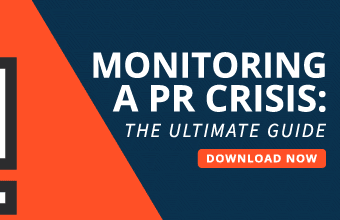For any company, the sickening of customers and the death of an employee would be an epically bad week. Just ask Chipotle, which battled outbreaks of e-coli and Norovirus at restaurants in 2015 and 2018.
And any business open to the public would be reeling for weeks if not months to come from apparent racial discrimination against a patron on its premises. Just ask Starbucks.
But if boththese incidents occur within one week, well, how does a company recover from that? You might ask Buffalo Wild Wings, but the answer is still pending.
The restaurant chain, owned by the privately held Inspire Brands, had a historically terrible stretch in early November that sadly culminated in tragedy. From a business perspective, it was a gut-punch, as well as gut-check as to what can be done to improve company policies and procedures. From a PR perspective, the events that unfolded may yet prove to be debilitating long-term and force a reorganization or other form of reckoning in order to move forward as a viable choice for the masses to consume their fix of wings.
Racist behavior ignites crisis
First, on Oct. 26, employees of a Buffalo Wild Wings in a suburb of Chicago drew criticism when they asked a large group of black people to relocate in the restaurant at the request of a patron who was bothered by their presence. The customer, a regular, apparently felt uncomfortable. The group, comprised of six adults and 12 youth basketball players, chose to find another establishment than comply with the host’s request. The two employees were quickly, and rightfully, fired, although the flare-up lingered for days with news accounts, fueled by a press conference Nov. 4 by representatives of the offended party.
The optics here were terrible, and the visuals were even worse, with multiple children shedding tears during that presser. Devoid of anything else, it would be enough to send executives running to their crisis communications playbook, and PR team plumbing the depths of their knowledge and experience to mitigate this disaster.
Then tragedy incites more concern
But true disaster was yet to come, only three days after the news conference. The GM of a restaurant in Burlington, Mass., died after cleaning agents he was using in the kitchen combined to become toxic. Eleven other employees and two patrons were sent to the hospital with burning eyes and difficulty breathing.
In a statement following the race incident in Naperville, Ill., BWW’s president said all of the right things, including that leadership “does not condone in any way what happened” and that “swift action was taken once we had all the facts.” It also pledged to conduct “enhanced sensitivity training,” the go-to response for any race incident these days, as though employees who deal with the public need to be educated on how to, you know, deal with people. Finally, the company promised to address recommendations from the affected families and welcomed a “meaningful, open dialogue with the families when they are ready.” For good measure, they banned the inciting customer from BWW for life.
Interestingly, this was a second statement, which, among other things, expanded that sensitivity training from Chicagoland restaurants to the entire chain. Nothing wrong with issuing one statement, then as facts evolve—and in this case the president later met with community members, patrons and team members—issuing a second, more thorough statement. The core messages of intolerance and the plan to rectify the situation remained consistent.
The company had no public statement available following the fatal incident in Burlington. That the sickening did not involve BWW’s food should set the public’s mind at ease. It was a spectacular error by an employee, and clearly an isolated incident, one the company will assuredly take steps to prevent from ever occurring again. Nonetheless, coming on the heels of the race incident, prospective diners were surely forced to rethink their feelings toward the BWW brand, which had been built on being a fun place to kick back with friends and make new ones while enjoying great food and a great game.
At this point, BWW needs to do everything it actively can to ensure there are no further crises
It would do well to launch new public-facing initiatives that benefit communities in which their sports bars are located, and better illuminate a company-wide program called RESPECT that it recently launched, but no one knows much about.
The company needs to hold itself up as welcoming to all, and the place to go to celebrate life’s victories. Diners are savvy enough to see isolated incidents as just that, and are generally willing to forgive if patterns of behavior or negligence don’t emerge. It was just Buffalo Wild Wings’ bad fortune for two major, very disparate incidents to occur in short order.
For this, there is no playbook.








